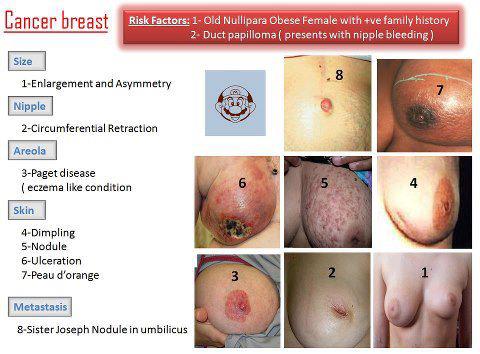Counting the Cost of Waste in Holiday Catering
In catering, as is the case in any other business sector, being resourceful has its own rewards. Wastefulness is never a positive attribute, but catering is an area offering particular rewards for companies that take the time to ensure their practices minimize waste and make the best possible use of the resources at their disposal.
For caterers based in hotels and holiday resorts, keeping on the ball in terms of waste is especially important. Holidaymakers tend to indulge themselves never more so than when eating and drinking so those preparing and serving meals need to ensure that they are the ones taking the responsibility to make the difference in limiting waste.
What is waste?
As a starting point, it is perhaps best to examine what is meant by the term 'waste'. It probably immediately conjures up images of food waste, and this is of course one of the main ways in which caterers blow their money. Through buying too many ingredients, serving needlessly oversized portions that diners rarely finish, and storing food inappropriately, caterers often fall into the trap of wasting food resources.
Waste in the kitchen doesn't begin and end with food, however. Bulky, non-recyclable items can take up room in the kitchen, and be awkward and costly to get rid of. Disposable, single-use items like plastic cutlery and paper plates also become waste products after they are used.
Caterers should also consider waste of labor are employees spending too much time carrying out manual processes that could be done by a machine? When chefs find themselves needing to wash up as they go along, managers should consider whether better facilities could allow catering staff to maximize the time they spend preparing and serving food.
How can holiday caterers reduce waste?
First, let's look at food. As a hungry diner on holiday, there is nothing worse than paying good money for a disappointingly small portion of food, but some caterers go too far to the other extreme. If your waiters regularly find themselves taking back plates still half-full with food, perhaps you are serving more than your customers want or need.
Possibly the only thing worse than too much food on the plate is too much in the trashcan. With meat in particular, remember that bones, carcasses, and fat trimmings still have flavor and uses in food preparation. Use them in stocks, stews, and soups, and consider what meals you could create from the bits and pieces left on the chopping board. Also make sure you are regularly checking the temperature in the kitchen, as well as monitoring how well your refrigerators, cupboards, and other storage facilities are functioning.
Elsewhere, try to cut down on disposables where you can. You may find that good quality kitchenware, while more expensive as a one-off purchase, pays for itself in the long run.
Your company is sure to gain an excellent reputation if it is able to adopt and maintain a 'zero waste' policy, meaning that products are reused or recycled wherever possible, and the amount of output that ends up in landfills is minimal. If the approval of your customers does not speak for itself, the money saved through cutting waste dramatically certainly will.
The hidden costs of waste in holiday catering
There is a very simple cycle to remember if waste management procedures are not in operation:
1. Waste costs caterers money
2. The shortfall in profit this could lead to is likely to result in food prices, and consequentially hotel rooms and package holiday prices, becoming more expensive
3. Fewer holidaymakers are prepared to shell out the additional dollars to stay with you
4. A disappointing holiday season awaits!
It really can't be stressed enough how important it is to stay on the ball in waste reduction, so start putting procedures in place today if you haven't already. Besides the crucial element of costs, all caterers worth their salt hate to see food and resources wasted, and it should really become second nature to be waste-conscious for the sake of both the caterer's bank balance and the environment.
Bio:
Norman James works for Alliance Online, which is one of the UK's leading suppliers to the leisure, catering, and healthcare industries. The company's clients range from household name hotels to up-and-coming trendy bars and luxury gyms. With over 18,000 products available, commercial catering firms can source their supplies from a trustworthy source. As well as taking its own environmental responsibilities very seriously, the company offers a range of biodegradable catering supplies, such as foam plates and refuse sacks, on its website: www.allianceonline.co.uk
For caterers based in hotels and holiday resorts, keeping on the ball in terms of waste is especially important. Holidaymakers tend to indulge themselves never more so than when eating and drinking so those preparing and serving meals need to ensure that they are the ones taking the responsibility to make the difference in limiting waste.
What is waste?
As a starting point, it is perhaps best to examine what is meant by the term 'waste'. It probably immediately conjures up images of food waste, and this is of course one of the main ways in which caterers blow their money. Through buying too many ingredients, serving needlessly oversized portions that diners rarely finish, and storing food inappropriately, caterers often fall into the trap of wasting food resources.
Waste in the kitchen doesn't begin and end with food, however. Bulky, non-recyclable items can take up room in the kitchen, and be awkward and costly to get rid of. Disposable, single-use items like plastic cutlery and paper plates also become waste products after they are used.
Caterers should also consider waste of labor are employees spending too much time carrying out manual processes that could be done by a machine? When chefs find themselves needing to wash up as they go along, managers should consider whether better facilities could allow catering staff to maximize the time they spend preparing and serving food.
How can holiday caterers reduce waste?
First, let's look at food. As a hungry diner on holiday, there is nothing worse than paying good money for a disappointingly small portion of food, but some caterers go too far to the other extreme. If your waiters regularly find themselves taking back plates still half-full with food, perhaps you are serving more than your customers want or need.
Possibly the only thing worse than too much food on the plate is too much in the trashcan. With meat in particular, remember that bones, carcasses, and fat trimmings still have flavor and uses in food preparation. Use them in stocks, stews, and soups, and consider what meals you could create from the bits and pieces left on the chopping board. Also make sure you are regularly checking the temperature in the kitchen, as well as monitoring how well your refrigerators, cupboards, and other storage facilities are functioning.
Elsewhere, try to cut down on disposables where you can. You may find that good quality kitchenware, while more expensive as a one-off purchase, pays for itself in the long run.
Your company is sure to gain an excellent reputation if it is able to adopt and maintain a 'zero waste' policy, meaning that products are reused or recycled wherever possible, and the amount of output that ends up in landfills is minimal. If the approval of your customers does not speak for itself, the money saved through cutting waste dramatically certainly will.
The hidden costs of waste in holiday catering
There is a very simple cycle to remember if waste management procedures are not in operation:
1. Waste costs caterers money
2. The shortfall in profit this could lead to is likely to result in food prices, and consequentially hotel rooms and package holiday prices, becoming more expensive
3. Fewer holidaymakers are prepared to shell out the additional dollars to stay with you
4. A disappointing holiday season awaits!
It really can't be stressed enough how important it is to stay on the ball in waste reduction, so start putting procedures in place today if you haven't already. Besides the crucial element of costs, all caterers worth their salt hate to see food and resources wasted, and it should really become second nature to be waste-conscious for the sake of both the caterer's bank balance and the environment.
Bio:
Norman James works for Alliance Online, which is one of the UK's leading suppliers to the leisure, catering, and healthcare industries. The company's clients range from household name hotels to up-and-coming trendy bars and luxury gyms. With over 18,000 products available, commercial catering firms can source their supplies from a trustworthy source. As well as taking its own environmental responsibilities very seriously, the company offers a range of biodegradable catering supplies, such as foam plates and refuse sacks, on its website: www.allianceonline.co.uk




I have never heard of that place. But have you ever hears of a place called Burgerville? exaculy, different places like Burgerville stay in the NW or in ur case the NE so that people form different parts of the country can try different tastes.
ReplyDeletehttp://www.neworleansbarandgrill.com/
This comment has been removed by the author.
ReplyDelete